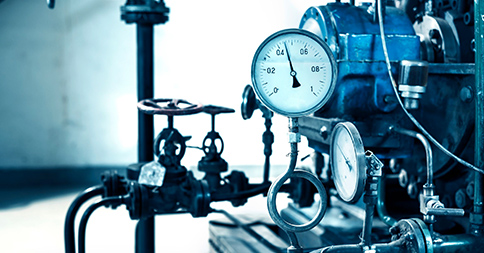When looking for an industrial boiler system, you need to consider a variety of factors. What kind of production environment do you have? What is the total operating pressure you’ll need, or the output you’re seeking? Do you have fluctuations in demand? And what kind of total cost of ownership (TCO) are you looking for?
Most decisions come down to two different types of boilers: watertube boilers and firetube boilers. The main difference is in the mechanism for producing steam.
In a watertube boiler, water is sent through a combustion gas-surrounded tube system that transfers heat energy into steam. In a firetube boiler, combustion gas is sent through a tube system that is surrounded by water, thus producing steam.
Each industrial boiler system has its advantages and disadvantages. Here is a rundown of the differences between the two types, which should help you choose the right system for your plant.
Understanding Watertube Boilers
Watertube boilers generally offer higher operating pressures and a higher temperature output. They also offer fast heat recovery, precise handling of load fluctuations, and higher dependability. Safety is also a prime feature of these boilers.
They do tend to come with a higher TCO when compared to firetube boilers, though, and are notably more complex and harder to maintain over time.
Understanding Firetube Boilers
Firetube boilers are known for being compact in design and construction, which enables them to fit into smaller spaces. They are quite efficient and easy to maintain, they have superior surge handling capabilities at pressure, and they are not very complicated to operate.
They have a lower TCO as well, but may lack superheated steam generation capabilities. Additionally, since the heat exchanger often doesn’t use thermal radiation, heat transfer efficiency isn’t as high.
Choosing the Right Industrial Boiler System
Which is preferable for your facility? It really depends on your environment, your preferences, and your operating conditions and parameters. Boilers come in a wide range of configurations and sizes. Design varies significantly. Engineering and construction can vary as well.
Your best option is to speak to specialists who craft boiler systems from the ground up and can design custom solutions for your specific needs. We always recommend talking to an expert before making any decision about the particular type of boiler system you’ll want in your facility.


